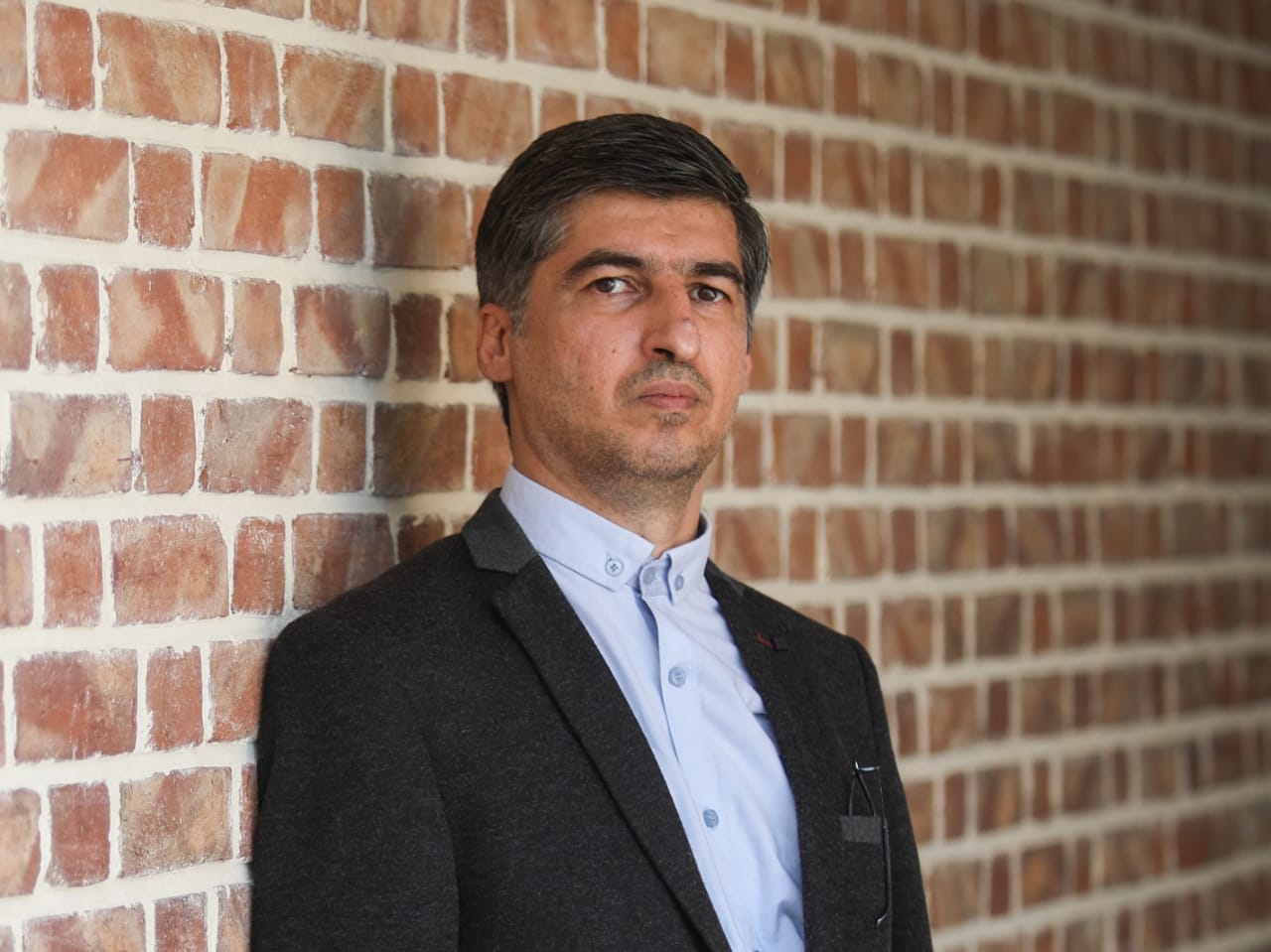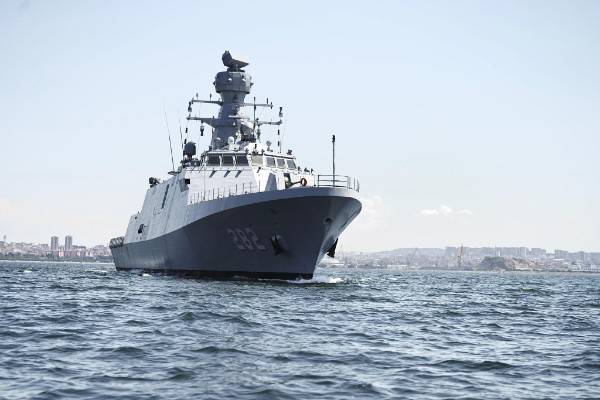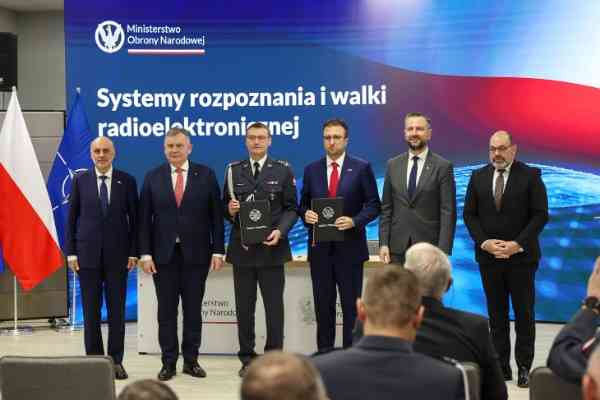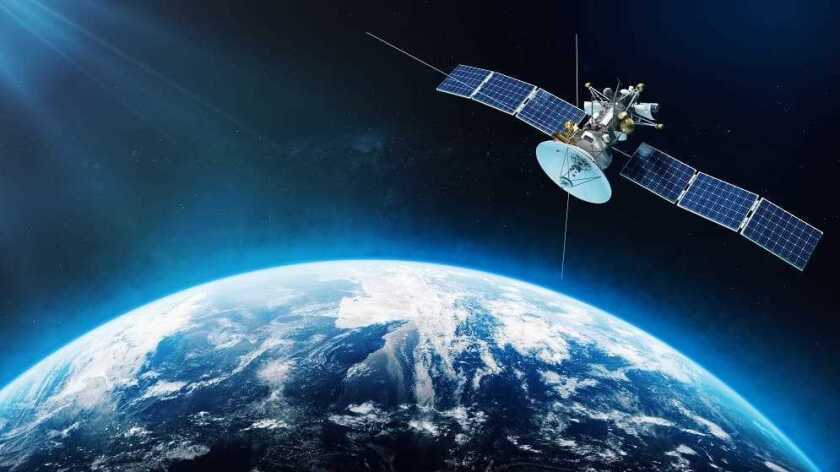Our Correspondent for the Middle East, Aimen Jamil, interviewed Dr Javad Heiran-Nia, Ph.D., International Relations, Director of the Persian Gulf Studies Group at the Center for Scientific Research and Middle East Strategic Studies in Iran. He was the Current Affairs Analyst at Cambridge Middle East and North Africa Forum. His articles have appeared in the Atlantic Council, Stimson Center, National Interest, Middle East Policy, Cambridge Middle East and North Africa Forum, Insight Turkey, Iran and the Caucasus Journal, Contemporary Review of the Middle East, Strategic Analysis, and LobeLog. Heiran-Nia’s commentary and interviews have been published by leading outlets including Newsweek, Anadolu Agency, The Asahi Shimbun, The Yomiuri Shimbun, Qatar AlarabyTV, Expresso, and the New Arab. His book titled Iran and the Security Order in the Persian Gulf is being published by Routledge. Follow him on Twitter: @J_Heirannia.
Global Defense Insight: How would you describe the key objectives of Iranian foreign policy in recent years, and how have they evolved over time?
Dr Javad Heiran-Nia: The foreign policy of the Islamic Republic of Iran in recent years is the result of its senior officials’ interpretation of the international system and domestic and regional requirements. According to this interpretation, the international system has undergone a fundamental change and the U.S. hegemony has declined, and countries such as China are emerging as new polar in the international system. Based on this, the policy of “negative balance”, which was manifested in the form of the slogan “Neither East nor West”, has turned into a policy of “positive balance” and alliance with powers such as China and Russia. According to the statements of Ayatollah Khamenei, in the new international order, Iran’s politics should be closer to the eastern powers. Because the western powers have a substantial and fundamental difference with the Islamic Republic and they cannot be trusted.
Global Defense Insight: How do you perceive the recent shift in Iran’s foreign policy towards the East and increased regional engagement? In light of the current Israel-Palestine conflict, what potential do you see for a Saudi-Iran renormalization, and how might this shift impact the dynamics of the Middle East?
Dr Javad Heiran-Nia: Iran’s regionalism strategy was caused by developments related to the US attacks on Iraq and Afghanistan. Iran realized that in the absence of an active regional policy and the lack of strategic depth, Iran will not be able to confront the enemies, i.e. the US, in the region. Iran believes that if Iran had a more active regional policy, the cost of America’s attacks on Afghanistan and Iraq would have increased, and the United States would not have been able to easily be present in these two countries and surround Iran.
The increasing of the “Look to the East” policy in the Ebrahim Raisi government also shows that, in addition to the fact that Iran is trying to create a balance against the West by working with world powers, it will also benefit from their support in regional issues. China played such a role in improving the relationship between Iran and Saudi Arabia. In this context, it should be noted that the drivers that caused Iran and Saudi Arabia to distance themselves from the tense tensions during Trump’s presidency and turn to diplomacy are still there. Therefore, improving the relationship has been a strategic decision by the two countries. Saudi Arabia is trying to improve relations and resolve regional issues that it was struggling with after the Arab Spring, including Yemen war. The key to solving the Yemen war is in the hands of Iran. Saudi Arabia needs to stabilize and reduce its immediate security threats in order to advance its Vision 2030. In the meantime, it is important to settle the war in Yemen and stay away from the conflict between Iran and Israel; That this country is not the target of Iran’s proxies in a possible war between Iran and Israel or Iran and America. On the other hand, America’s focus on containing China also made Saudi Arabia to solve security issues that are not America’s immediate willing. Part of the behavioral independence of Saudi Arabia is due to the fact that the regional order of the Persian Gulf has moved away from the hegemonic order led by the United States, and in the new order, the behavioral independence of the regional powers increases. Iran also sought to reduce its tensions with Saudi Arabia and to get out of regional and global isolation; At the same time, it also looks at Saudi investment to improve its economic conditions. The reduction of tension with Saudi Arabia is China’s request from Iran. Because China has made a huge investment in Saudi Arabia and does not want the security of its investment to be jeopardized by Iran. Therefore, considering the strategic relations with Iran in the form of a 25-year strategic document, China had the appropriate leverage in this direction.
Global Defense Insight: How does Iran navigate its relationships with both regional and global powers considering its regional influence and international alliances?
Dr Javad Heiran-Nia: Iran’s regional policy is a reflection of its interpretation of the international order. Although Iran’s regionalism strategy also has some degrees of independence. For example, although Iran’s neighborhood policy has some overlaps with the country’s international policy, it can also be analyzed based on the policy of regionalism. For example, Iran has good relations with India and the North-South Corridor is a part of this cooperation. Although India is trying to bypass China through this corridor, which somehow imposes geographical deterrence on India to reach Central Asia and Russia and EU. At the same time, Iran also pursues the “Look to the East” policy which is closer to Russia and China, and by joining organizations such as the Shanghai Cooperation Organization, it is trying to deepen it. Therefore, Iran is trying to strike a delicate balance between the policy of “Look to the East” and relations with countries such as India and Japan, which are defined in the orbit of the West.
Global Defense Insight: How does Iran articulate its rationale for supporting specific Palestinian factions, and in the broader context of the Israeli-Palestinian conflict, what role does Iran envision for itself in contributing to or influencing the pursuit of a sustainable and inclusive peace process in the region? Can you elaborate on the ideological or strategic considerations that shape Iran’s rationale for backing particular Palestinian groups in the context of the broader Israel- Palestine conflict?
Dr Javad Heiran-Nia: In the shadow of a hostile and existential enmity with the West (US), Iran pursues some of its regional policies. On the other hand, due to its isolation from the West and irreconcilable relationship (antagonist relationship) with it, Tehran manages its foreign policy. Also, in the absence of advanced weapons compared to its rivals and enemies, Iran uses proxy forces to advance its foreign policy goals. Although some policies regarding the issue of Palestine and Israel have an ideological appearance, they are geopolitical in nature. Currently, the presence of Iran’s proxy forces around Israel and in the Red Sea makes it have the levers of pressure against Israel and the US. Iran’s enmity with Israel is part of the big game of Iran’s dispute with the US. Iran believes that the relationship with the West will remain irreconcilable forever because the West has a problem with the nature of the Islamic Republic of Iran and Political Islam and wants to destroy it. According to this interpretation, there is no reconciliation between liberal ideology and political Islam. In the absence of proxy groups, the regional order will be severely detrimental to Iran. Based on this, after the US attack on Iraq and especially after the Arab Spring, Iran organized and strengthened its proxy forces and turned “Shia ideology” into “Shia geopolitics”. In this way, Iran has changed the balance of power in its favor in the region.
Global Defense Insight: Considering the potential for maritime tensions in the region, how does Iran address security concerns and maintain a balance between projecting power and avoiding escalation in the context of the Israel-Palestine conflict?
Dr Javad Heiran-Nia: Iran believes that the security of navigation in the Persian Gulf has been jeopardized by the presence of foreign forces, including the United States. Also, the regional countries’ security agreements with America will not provide their security either. Based on this, Iran has been trying to endanger the security of foreign forces in the region in order to raise the costs of the presence of foreign powers, including the United States. Iran believes that security in the Persian Gulf will be achieved when Iran also feels secure, and any threat against Iran in the region can lead to greater threats. Therefore, during the period of increasing tension in Trump’s presidency, Iran announced that any war in the region would be the “mother of all wars”. That is, if Iran becomes a security threat, it will spread this insecurity to all the US’ allies and its forces in the region. Meanwhile, Iran sees the India-Persian Gulf-Mediterranean Sea (Arab-Med) Corridor as a conflict with its regional plans. Therefore, the war in Gaza is important because it destabilizes the security of the Red Sea. Based on this, the Yemeni Houthi attacks in this war on Israel’s port of Eilat or ships from/to Israel can be evaluated in this regard. Let’s not forget that Israel is an important hub in the mentioned corridor. A corridor that reduces the importance of the North-South corridor for India.
Global Defense Insight: How do Iran’s recent joint naval exercises with Oman in the Strait of Hormuz, as well as its upcoming joint exercises with Russia and China in the Persian Gulf, influence the strategic dynamics in the region, particularly in the wake of the Israel-Palestine conflict? How might these naval activities impact the interests and perceptions of the United States and Israel in the broader geopolitical context?
Dr Javad Heiran-Nia: Maneuvering with Russia and China by Iran takes place in the new environment of the international order. Although Iran, Russia and China have major problems with America, Russia and China interacted with the US. One of the reasons for Iran’s non-membership in the Shanghai Organization was that China did not want Iran’s presence in this organization to give it an anti-American nature. But with the war in Ukraine and the escalation of tensions between America and China on the issue of Taiwan, it made Moscow and Beijing adopt a more anti-American approach. In the meantime, their views have become closer to Iran in anti-Americanism. Therefore, carrying out these maneuvers gives them the possibility to establish a regional order in a way that creates maneuvering power for the three countries, in addition to creating a balance against America. Of course, each country has its own goals. But from Iran’s point of view, the presence of these powers in the region can create a balance against America.
Global Defense Insight: What are the main challenges and opportunities Iran faces as it seeks to assert itself in the emerging world order and how does it adapt its foreign policy to address these dynamics?
Dr Javad Heiran-Nia: Iran believes that the international order is transitioning from western powers to eastern ones and the future order is centered on China and to some extent Russia. Some Iranian officials believe that this order has been established and has moved out of the state of transition. According to this interpretation, which is also supported by the leader of Iran, alliance with the eastern powers is necessary to advance Iran’s interests. Because on the one hand, it can create a balance against America and on the other hand, it can take advantage of their growing power for its own interests in the economic, commercial, military, etc. fields. Iran’s interpretation is that, in such a situation, the policy of ‘negative balance’ is not a rational policy, and should switch to a positive balance and take advantage of the benefits of the new order. In the previous order, which was based on the American hegemonic order, Iran was under pressure and its vital interests were endangered. In addition, the experience of improving relations with the West did not help Iran and did not prevent the West from becoming hostile to it. For example, Iran’s help to the US in the context of the Afghanistan war by the reformist government of Mohammad Khatami caused the Bush administration to place Iran among the countries of the ‘axis of evil’. Or, the nuclear agreement (JCPOA) did not prevent the US from effectively removing its sanctions, and finally, with the withdrawal of the Trump administration and the imposition of secondary sanctions, the sanctions returned again.
Global Defense Insight: Iran’s admission to SCO and BRICS is a big achievement in the face of sanctions. How will it help Iran to surpass western sanctions?
Dr Javad Heiran-Nia: One of Iran’s goals for membership in the Shanghai Cooperation Organization and BRICS is to circumvent sanctions and use the capacities of member states of these organizations to circumvent sanctions. These organizations have efforts to carry out commercial exchange with non-dollar currencies. Iran hopes to meet its economic needs through non-dollar exchanges regardless of the sanctions. The point here is that although these organizations currently have de-dollarization on their agenda, this goal is not aligned with the goals pursued by Iran. The members of these organizations have economic relations with America and western countries and work with all international parties except Russia after the war in Ukraine. They do their transactions with SWIFT and are not on the FATF blacklist like Iran. These countries see de-dollarization to create a balance against the hegemony of dollar, while they are also present in the structure of the dollar-based order. But such a possibility is not possible for Iran and the only option is non-dollar exchanges and commodity clearing. Therefore, the influence of these organizations in circumventing sanctions on Iran is little. In the shadow of sanctions, large Chinese companies will not be willing to risk themselves for doing business with Iran. India has also made investment in Chabahar port subject to the lifting of sanctions; Although it has been allocated a budget by the Narendra Modi government.
Global Defense Insight: How does the lifting of the U.N. arms embargo on Iran, enabling the acquisition of Russian weaponry, such as the Sukhoi Su-35 and Mil Mi-28, impact the Middle East’s regional balance of power? Considering the U.S.’ objections, how might this development affect diplomatic relations and escalate geopolitical tensions in the region?
Dr Javad Heiran-Nia: The issue of delivery of Sukhoi Su-35 and Mil Mi-28 by Russia to Iran has not much to do with UN sanctions. The removal of these sanctions only from the legal aspect makes Iran entitled to export and import weapons. On the other hand, we saw the imposition of sanctions in this field by America and Europe after the lifting of UN sanctions in this regard. The export of these weapons by Russia to Iran does not have legal grounds, but has political and geopolitical logic. Russia is a balancer actor in the Persian Gulf region and has good relations with Persian Gulf Arabs and Israel. In the war in Ukraine, relations between Russia and Israel have been damaged to some extent. In giving these weapons, Russia should take into account the considerations of Israel and the Arab countries that oppose Iran. The delivery of such weapons to Iran will change the military balance of the region strongly in Iran’s favor and will cause the deterioration of Moscow’s relationship with the Arabs and Israel.












